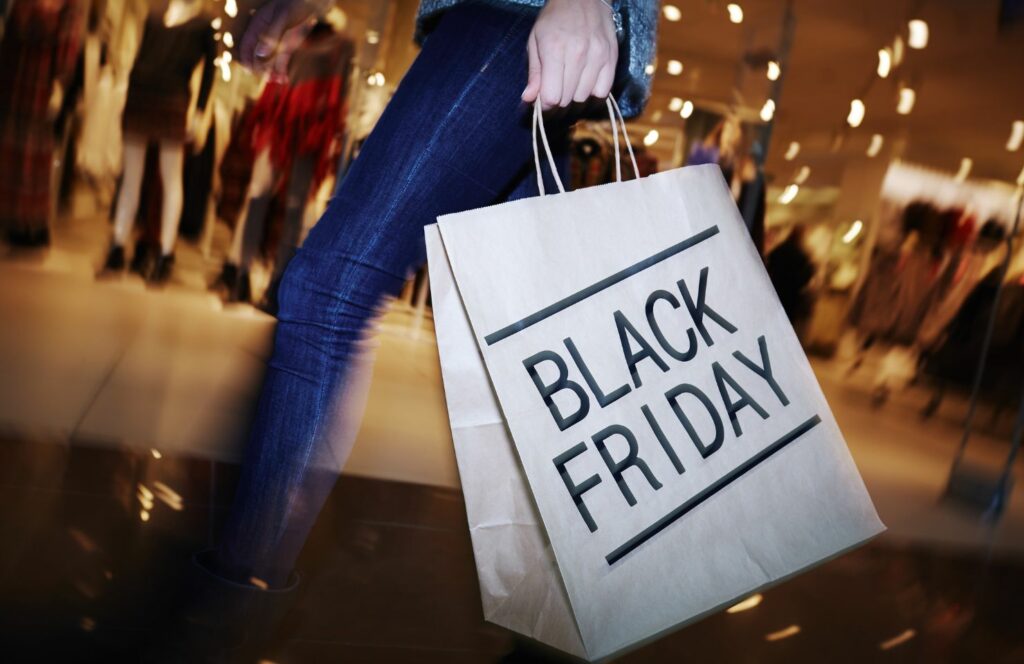In recent years, more and more people are asking themselves why Black Friday is bad for them. Due to the rapid rise of consumerism, this day has become nothing short of retail workers’ worst nightmare. Find out why Black Friday is bad for you and how you can still make the most out of it.
What Black Friday is about

The origins of Black Friday
The story of how Black Friday came about is as murky as its name. Generally, two storylines explain the existence of Black Friday:
The Philadelphia Police Department in the 1960s
One popular theory attributes the term "Black Friday" to the Philadelphia Police Department in the 1960s. It is said that they used the term to describe the chaotic and congested traffic and crowds that would occur the day after Thanksgiving, as large numbers of suburban shoppers and tourists descended on the city for the Army-Navy football game.
The police officers had to work long hours to manage the crowds and traffic, and they referred to this day as "Black Friday" because it was challenging and exhausting for them.
Retailers' Accounting Practices
Another explanation ties the term to retailers' accounting practices. In this version, "Black Friday" refers to the point in the year when many retailers finally turn a profit, moving from being "in the red" (losing money) to being "in the black" (making money).
Retailers traditionally record their losses in red ink and their profits in black ink, and the surge in sales that typically occurred on the day after Thanksgiving helped them get into the black for the year.
A modern phenomenon
Perhaps the second origin story would best explain the modern understanding of Black Friday. Nowadays, it’s a global phenomenon for retailers and consumers worldwide. Shocking deals of up to 99% off, pre-sales and after-sales, and the brutal (and oftentimes trampling) race to the best deal all signify Black Friday.
The term “Black Friday horror stories” is perhaps one of the most searched terms on Google around this time, as there are many truly horrific stories surrounding people’s shopping behavior. It’s safe to say that Black Friday isn’t the “deal” it claims to be, especially for you.
Why Black Friday is bad for you
It promotes impulsive shopping and consumerism

Black Friday promotes impulsive shopping and consumerism through psychological tactics and the lure of deeply discounted products. Retailers strategically create a sense of urgency by offering limited-time deals and emphasizing that these discounts are available for just one day.
This urgency taps into consumers' fear of missing out (FOMO), pushing them to make quick, sometimes impulsive decisions. Moreover, the crowds, frenzied atmosphere, and competitive nature of Black Friday shopping can create a sense of excitement and adrenaline that leads people to buy items they may not have initially planned to purchase.
The deeply discounted prices and the perception of getting a "good deal" also encourage consumers to buy more than they originally intended. Black Friday serves as a powerful catalyst for impulsive shopping and fuels consumerism by making people feel compelled to spend money on items they may not necessarily need, contributing to a culture of excess and materialism.
It will most likely give you buyer remorse
Black Friday can lead to buyer's remorse for several reasons. First, the pressure of limited-time deals and FOMO can prompt impulsive purchases, causing people to buy items they may not truly need or want. Later, when the initial excitement wears off, they may regret their choices.
Second, the aggressive marketing tactics and hyped-up atmosphere of Black Friday can create a sense of urgency that clouds judgment. Shoppers may overlook quality or suitability to grab a bargain, only to realize later that the item doesn't meet their expectations.
Finally, the sheer volume of purchases made during Black Friday can strain budgets, causing financial stress and remorse once the credit card bills arrive. In these ways, the intense shopping frenzy of Black Friday can sometimes lead to post-purchase regret for consumers.
It generates a lot of waste

Waste during Black Friday is primarily due to the massive consumer-driven shopping spree it encourages. Shoppers flock to stores and websites, often purchasing items they may not necessarily need. This leads to the production and consumption of vast quantities of goods, many packaged in single-use plastic or excessive packaging materials.
Moreover, the rapid turnover of consumer electronics and other products during Black Friday promotions contributes to electronic waste (e-waste) as older items are replaced, adding to the already substantial e-waste problem.
Additionally, the increased transportation of goods and the rush for fast delivery can result in increased emissions and packaging waste. Overall, while Black Friday may offer savings for consumers, it also contributes significantly to environmental issues related to overconsumption and waste generation.
It brings about the worst in us
The competitive nature of limited-time sales can lead to aggressive behavior, such as pushing, shoving, and even physical altercations among shoppers vying for the same items. Additionally, the frenzy of consumerism can promote excessive spending and impulsive purchases, leaving individuals with financial stress and regret after the excitement fades.
Furthermore, the pressure to secure the best deals may lead to dishonest practices like price manipulation or false advertising. Overall, the extreme commercialization of Black Friday can sometimes encourage negative behaviors and prioritize materialism over the values of patience, kindness, and responsible spending.
Is Black Friday all bad?
Black Friday isn’t all bad
Black Friday isn't all bad; it does have some positive aspects. For many consumers, this day offers a chance to save money on items they genuinely need or have been planning to purchase, making it a practical opportunity to stretch their budgets during the holiday season.
The excitement of the sales can also bring families and friends together as they embark on shopping trips, creating bonding experiences. Moreover, Black Friday can be an economic boost for retailers, especially small businesses, as it can significantly increase their revenue and help them stay afloat.
The event also supports job creation, as many stores hire additional staff to handle the increased foot traffic. When approached responsibly, with careful planning and consideration, Black Friday can provide genuine benefits for both consumers and businesses alike.
How to make Black Friday better for you

There are ways you can make Black Friday better for you.
- Have a clear plan and budget for what you need before going shopping.
- Research an item you’d like to buy. Spend your money wisely.
- Keep your head in the game. Try your best not to stray too far from your shopping list.
- Support brands that give back. For example, Flightgift is a brand that plants trees for every purchase you make.
Why Black Friday is bad for you: Last thoughts
Black Friday has its good and bad sides. We hope that this guide helps you with making the right purchasing decisions during this tempting season, where everything is at a too-good-to-be-true price.










